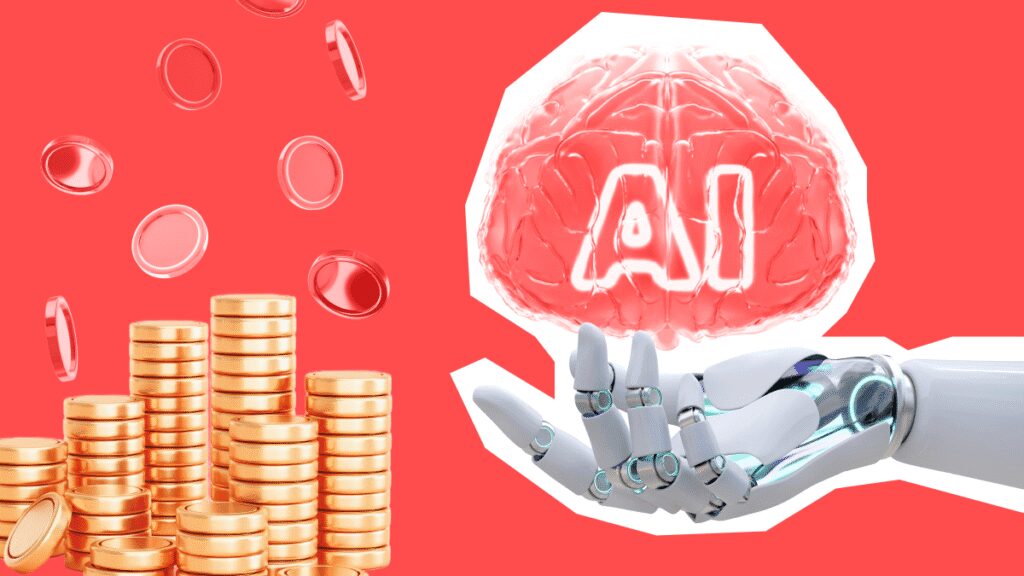Are AI Tokens the New Layer 1s? What 2020 DeFi Can Teach Us About 2025 AI
Are AI tokens the new Layer 1s? What 2020 DeFi can teach us about 2025 AI is crucial as we look ahead to 2025, the 2020 DeFi boom offers valuable insights into the potential of AI tokens in decentralized finance. This article examines how AI tokens might become as foundational as Layer 1 blockchains, exploring the lessons from DeFi to predict the role of AI in reshaping the crypto landscape.
Key Takeaways
- AI tokens are emerging as fundamental building blocks in decentralized finance, enhancing automation, transparency, and reliability in various sectors.
- The lessons from the 2020 DeFi boom highlight the importance of adaptability and innovation as AI tokens create new markets and opportunities in the crypto ecosystem.
- Investment trends show significant growth in AI-focused tokens, marking them as a crucial component in the next evolution of the crypto market, akin to early DeFi protocols.
The Evolution of Layer 1s and AI Tokens
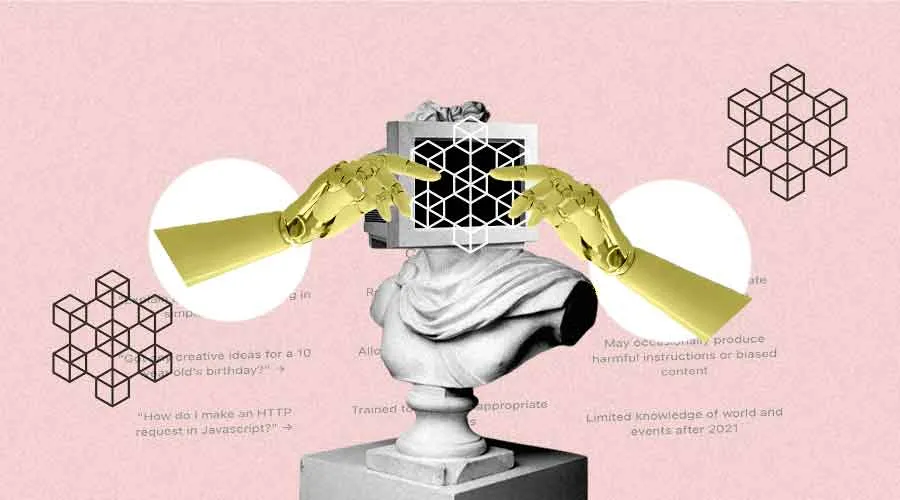
Layer 1 blockchains like Ethereum and Solana have experienced tremendous growth in user engagement and institutional interest, driven by ongoing protocol upgrades and innovations. These advancements have laid the groundwork for the integration of AI into decentralized finance, creating a fertile environment for the rise of AI tokens.
Significant figures in the crypto space, such as Vitalik Buterin, have been instrumental in influencing the development of AI and decentralized infrastructure protocols. Their vision and contributions have paved the way for a new era where AI and blockchain technology converge, enhancing the security and service delivery of blockchain ecosystems.
The integration of AI into the crypto sector is not just a futuristic concept; it is a current reality that is reshaping financial paradigms. AI introduces decentralization, transparency, and automation, much like how Layer 1 blockchains revolutionized traditional finance. This technological evolution has transitioned from scattered experiments to a thriving market sector, showcasing the rapid growth and potential of AI in crypto.
As we witness the convergence of AI and blockchain technology, it is clear that AI is redefining the possibilities in decentralized finance. The historical lineage of AI in crypto underscores its relevance today, and leading projects like:
- Fetch.ai
- Render
- SingularityNET
- Ocean Protocol
are at the forefront of this innovation. These projects are not only shaping how AI models are constructed and managed in decentralized networks but are also driving the creation of new markets for ai marketplaces and decentralized AI services aligned with Web3 values.
Lessons from 2020 DeFi Boom
The DeFi landscape evolved as follows:
- In 2020, it was characterized by chaotic freedom, yield farms, token swaps, and volatility. This period of explosive growth and experimentation laid the foundation for the digital finance ecosystem we see today.
- By 2023, DeFi had matured with scalable infrastructures.
- Despite maturation, significant challenges remained, such as security vulnerabilities and regulatory hurdles.
Total Value Locked (TVL), Annual Percentage Yield (APY), and liquidity pools were key metrics in the rise of DeFi, providing liquidity. These indicators were crucial in shaping the ecosystem. These metrics attracted users and capital, creating an incentive flywheel that resulted in network effects and significant user growth. The rapid influx of capital and users during the DeFi boom demonstrated the power of decentralized finance to disrupt traditional financial systems.
One of the most notable trends from the 2020 DeFi boom was the tokenization of real-world assets, which has continued to gain popularity. This trend mirrors the ongoing integration of AI in finance, where real-world asset (RWA) tokenization is emerging as a crucial element of DeFi, linking traditional and decentralized finance. An AI-driven transformation of finance is anticipated by 2025, signaling a significant shift in financial paradigms.
Drawing lessons from the 2020 DeFi boom, we can see how the introduction of decentralized finance paved the way for the integration of AI tokens. Just as yield farming and lending platforms revolutionized DeFi, AI tokens have the potential to drive innovation and create entirely new markets within the crypto ecosystem.
The parallels between these two periods of rapid technological advancement highlight the importance of adaptability and continuous driving innovation in the ever-evolving world of decentralized finance, marking a major leap in the industry and encouraging wider adoption.
AI Tokens: The New Building Blocks
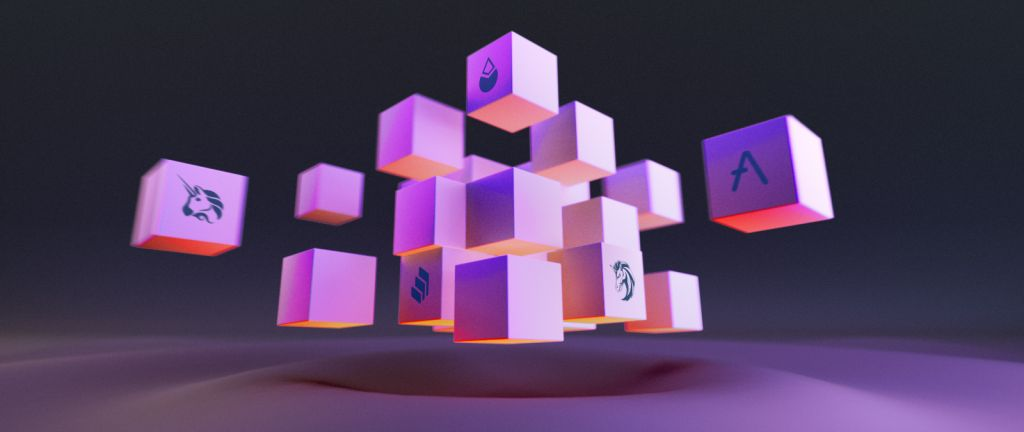
AI tokens represent the next generation of programmable assets within the crypto ecosystem. These tokens facilitate decentralized AI model training and the operation of autonomous AI agents on blockchain networks. Blockchain technology allows AI tokens to ensure transparency and tamper-proof integrity of AI datasets, enhancing the reliability of autonomous operations.
On chain ai agents operate within decentralized networks, enabling them to plan, decide, and execute complex tasks autonomously. This level of automation and intelligence positions AI tokens as the new building blocks for decentralized finance, much like how smart contracts revolutionized traditional financial systems. The market capitalization of AI-focused cryptocurrencies has grown significantly, indicating a rapid expansion within this sector.
The rise of DeFAI tokens, a new category within crypto, underscores the growing importance of intelligence and automation in the market. These tokens represent a new generation of digital assets that are programmable and capable of executing sophisticated tasks. Emerging projects often focus on real-world applications that promote community engagement and developer collaboration, driving further innovation within the AI and blockchain space.
Projects addressing the data access bottleneck and fostering open AI ecosystems include:
- Ocean Protocol: Solving the data access bottleneck for the AI industry and promoting more open and decentralized ecosystems.
- Bittensor: Allowing users to contribute to open AI networks and earn tokens.
- Fetch.ai: Enabling user participation in open AI networks with token rewards, fostering a collaborative environment for AI development.
As AI networks continue to evolve, the role of AI tokens as fundamental building blocks in decentralized finance will only become more pronounced.
Real-World Applications of AI Tokens
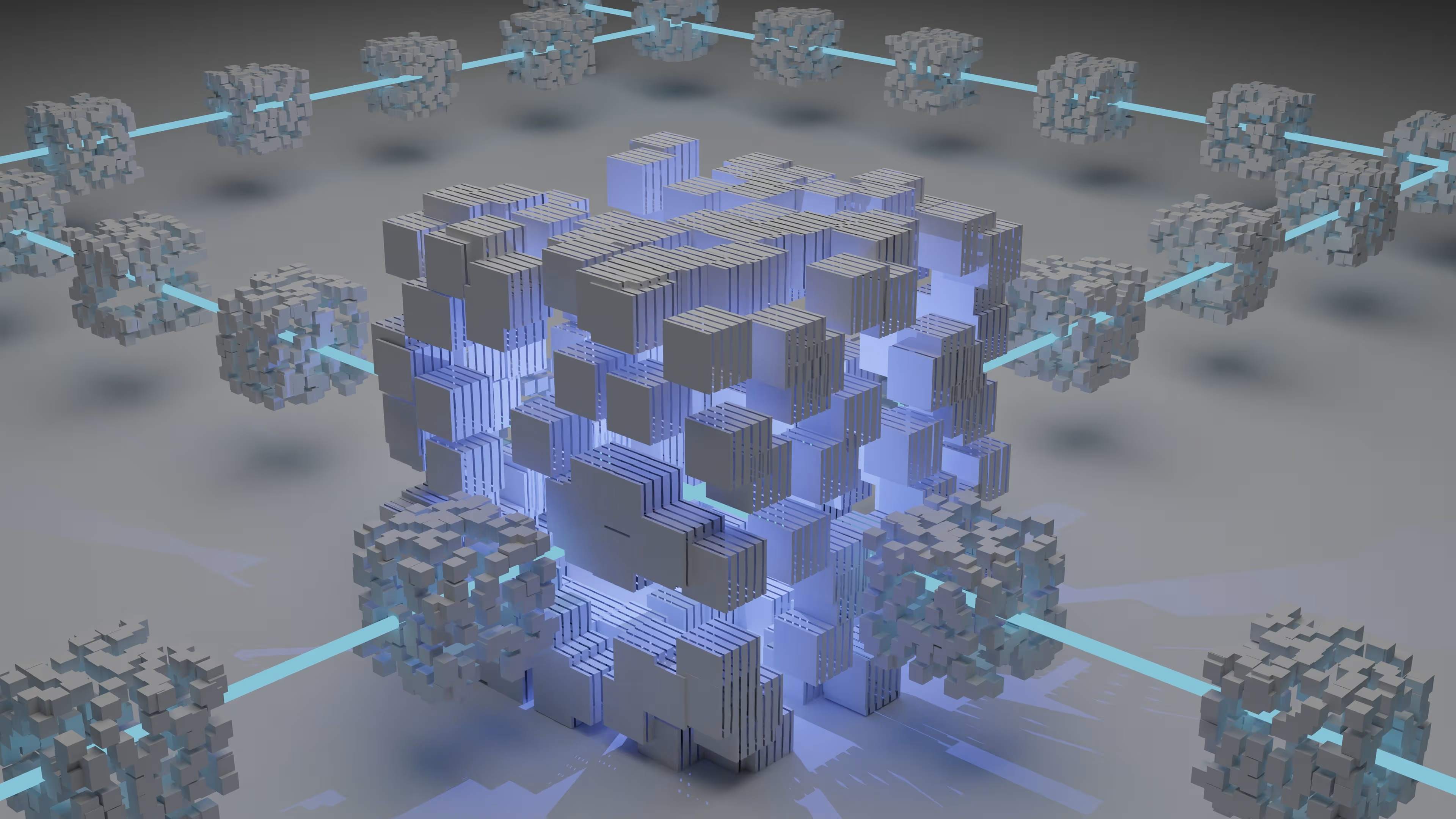
AI tokens are not just theoretical constructs; they have real-world applications that are transforming various industries. In decentralized finance, AI models enhance trading strategies by optimizing them and detecting arbitrage opportunities. This capability allows traders to make more informed decisions and execute trades more efficiently.
AI-powered agents can auto-generate, test, simulate, and audit smart contracts in under a minute, significantly reducing the time and effort required for these tasks. This automation enhances the development and deployment of decentralized apps, making the process more efficient and reliable. Additionally, AI tokens enable decentralized computation and enhanced data processing capabilities, which are essential for the functionality of smart contracts. An ai agent can further streamline these processes. Artificial intelligence can also play a crucial role in optimizing these operations. Intelligent agents can enhance these capabilities even further.
In sectors like supply chain management, AI tokens facilitate secure data tracking, improving visibility and logistics. AI tokens also incentivize the exchange of medical data on blockchain, enhancing diagnostics and drug discovery. These real-world applications demonstrate the versatility and transformative potential of AI tokens across various industries, reinforcing their importance as the new building blocks of decentralized finance.
AI-Powered Governance Models

The integration of AI into decentralized finance is driving the development of AI-powered governance models. These models allow for real-time adjustments in decentralized treasuries and protocols based on market data, enhancing the adaptability and responsiveness of decentralized intelligence financial systems.
AI-driven governance models enable decentralized networks to make machine learning models decisions autonomously, reducing the need for human intervention and speeding up the decision-making process. This level of automation is particularly beneficial in volatile markets, where rapid adjustments can mitigate risks and capitalize on opportunities, leveraging the network effect.
Governance tokens have emerged as a key component of these AI-powered governance models, enabling holders to vote on protocol changes and governance decisions. This fosters community engagement and ensures that the development and operation of decentralized networks align with the interests of their users.
Integrating AI into governance structures makes decentralized finance more efficient, transparent, and inclusive, fostering innovation and growth in the sector.
Security and Ethical Considerations
As AI tokens become more integrated into decentralized finance, security and ethical considerations must be addressed. One primary concern is ensuring that training data is verifiably representative of human perspectives to avoid bias in AI models. Bias in training data can affect access and incentives within AI systems, leading to ethical pitfalls.
Autonomous financial protocols pose ethical challenges, as decision-making without human input can result in unintended consequences. Navigating these challenges requires a focus on economic correctness and addressing ethical issues in an AI-native economy. Projects like LazAI are working to improve data alignment and incentive structures to enhance ethical considerations in AI systems, autonomous finance, and autonomous agents.
Anchoring data on-chain with Data Anchoring Tokens (DATs) ensures trustworthy and measurable AI training data for stakeholders. Additionally, platforms like Ocean Protocol use advanced cryptography and blockchain governance to protect data rights and enhance security. These measures are crucial for maintaining user trust and ensuring the integrity of AI interactions within decentralized finance.
Market Dynamics and Investment Potential
The intersection of AI with blockchain is emerging as a significant investment trend in 2025. Key highlights include:
- AI-focused tokens within the crypto sector have surpassed a market cap of $44.5 billion, highlighting the growing interest and potential of this market trends.
- Projects like Fetch.ai and Render are witnessing rapid growth due to their potential in decentralized computing.
- These projects are attracting significant investor attention.
Macroeconomic factors are driving investors to view crypto as a safe asset amidst volatility, further boosting the appeal of AI tokens. The capitalization of AI-linked cryptocurrencies is growing significantly due to advancements in on-chain technology and the increasing adoption of decentralized AI services.
Institutional investments are increasingly focusing on foundational blockchain infrastructure, which is considered crucial for future market cycles. The investment trends in AI tokens are reminiscent of early DeFi protocols, where new technology and capital flow accelerated growth. As AI tokens continue to gain traction, they are poised to create entirely new markets and drive the next era of digital economies.
Developer Insights: Building with AI Tokens
Building with AI tokens requires a suite of advanced tools and platforms that optimize the development workflow. Bolt.new allows developers to quickly scaffold full-stack decentralized applications (dApps) with a single prompt, streamlining the development process. Similarly, Cursor is an AI-powered integrated development environment (IDE) that offers contextual assistance and simplifies coding tasks.
AI plays a crucial role in creating error-handling patterns and logging strategies, improving the robustness of smart contracts. Tools like Claude provide insights on smart contract audits and complex system refactoring, enabling developers to build more secure and reliable applications.
Replit offers a cloud-based environment that supports collaborative development and integrates AI for real-time code generation and testing. These tools and platforms are essential for developers looking to leverage AI tokens and build innovative decentralized applications, driving the growth and adoption of decentralized AI.
Future Prospects: AI Tokens and Layer 1s
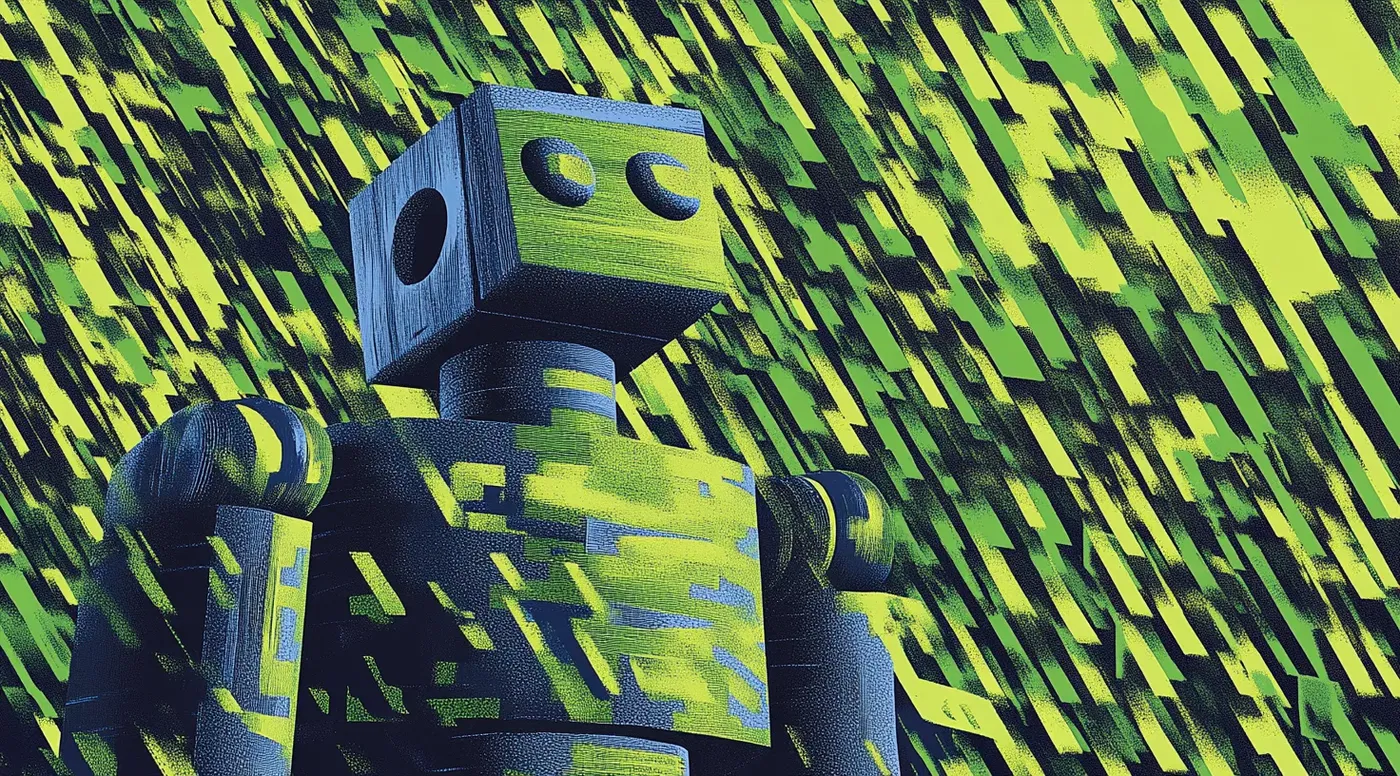
The future prospects of AI tokens and Layer 1 blockchains are intertwined, with significant growth potential projected through 2025 and beyond. A fragmented future in crypto is anticipated, with specific niches like real-world assets and AI tokens emerging as prominent players. Regulatory clarity is expected to enhance mainstream adoption of digital assets, including AI tokens, further driving their growth.
Projects that successfully integrate real utility and regulatory compliance are anticipated to lead in the evolving landscape of AI in crypto. The next significant crypto innovations are expected to revolve around infrastructure improvements that provide lasting value.
The convergence between AI infrastructure and crypto hardware is a major trend to watch, as it will drive further advancements in decentralized finance. As AI tokens continue to gain traction, their role in the next era of decentralized finance will become more pronounced. The collaboration of AI and Web3 technology is expected to drive innovation and create new opportunities within the crypto ecosystem.
Summary
The rise of AI tokens marks a significant evolution in the decentralized finance landscape, drawing parallels to the explosive growth of DeFi in 2020. These tokens are transforming how we interact with financial systems by introducing decentralization, transparency, and automation. The evolution of Layer 1 blockchains like Ethereum and Solana has laid the groundwork for this new wave of innovation, with notable figures and projects driving the integration of AI into the crypto sector.
The lessons learned from the 2020 DeFi boom highlight the importance of adaptability and continuous innovation. AI tokens are emerging as the new building blocks of decentralized finance, with real-world applications ranging from optimizing trading strategies to enhancing supply chain management. AI-powered governance models are enabling more responsive and efficient decentralized networks, while security and ethical considerations are being addressed through innovative solutions like Data Anchoring Tokens and advanced cryptographic measures.
Looking ahead, the market dynamics and investment potential of AI tokens are poised to drive significant growth. With regulatory clarity and the convergence of AI and crypto technologies, the future of decentralized finance looks promising. As we move forward, the collaboration between AI and Web3 technology will continue to drive innovation and create new opportunities within the crypto ecosystem. The potential of AI tokens to revolutionize finance and other industries is vast, and their role in shaping the future of decentralized finance is undeniable.
Frequently Asked Questions
What are AI tokens, and how do they work?
AI tokens enable decentralized training of AI models and the functioning of autonomous AI agents on blockchain networks, promoting transparency and the integrity of AI datasets.
How do AI tokens enhance decentralized finance?
AI tokens enhance decentralized finance by bringing decentralization, transparency, and automation, which optimize trading strategies and improve lending and borrowing processes. Their integration fosters a more efficient and trustworthy financial ecosystem.
What lessons can we learn from the 2020 DeFi boom?
The key lessons from the 2020 DeFi boom include the significance of metrics such as Total Value Locked (TVL) and Annual Percentage Yield (APY), as well as the potential of tokenizing real-world assets. Understanding these elements can help navigate future developments in decentralized finance.
What are the security and ethical considerations of AI tokens?
The security and ethical considerations of AI tokens include ensuring verifiable training data to prevent bias and utilizing advanced cryptographic measures to safeguard data rights. It’s essential to address the ethical challenges posed by autonomous financial protocols.
What is the investment potential of AI tokens?
AI tokens hold strong investment potential due to their substantial market capitalization and growing institutional interest, driven by advancements in decentralized computing and on-chain technology.

